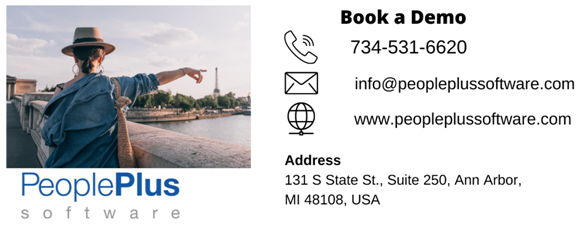How Business Intelligence is Changing Healthcare?
By understanding the impact of technology, we can better know how it is changing healthcare and the role it is playing to improve the quality of our lives.
Technology in medicine has been moving forward rapidly over the past several years. Due to more use of electronic health records (EHRs), an increase in access to BI, and the rapid spread of computer technology, many professionals are considering the impact technology is having on their industry. It can be difficult to change the ways we think about healthcare, but the impact of this development is extremely important to consider.
“Technological developments in healthcare have saved countless patients and are continuously improving our quality of life. Not only has that, but technology in the medical field had a massive impact on nearly all processes and practices of healthcare professionals”
Let’s explore some of the incredible advancements introduced by business intelligence in the field of healthcare:
Better Reviewing of Health Due to BI & Reporting
The more information that can be found by a patient, the more valuable BI becomes. A physician can better review history in a healthcare setting without having to refer to a medical book with the help of cloud computation. Instead, a person's medical history is located on a computer screen, and charts are generated to help a physician maintain accurate records of their patient's health and progress. If you want to find out more about BI and similar aspects and how it is changing healthcare, you can visit PPS’s portal and available services.
Increasing Care Through Product Engineering
Most physicians are now taking time to be available for patients' needs. This involves the active monitoring of patients through product engineering. PPS (PeoplePlusSoftware) offers Healthcare Product Development including multiple technologies such as, agile methodology, and complete SDLC support. Hospitals realize that they must offer a high quality of care that is not only relevant to the patient but can also be accessed through a cloud product, connecting multiple teams for collaboration.
Increased Accessibility Via Mobility
It is not always easy to visit a doctor when you are sick or injured. While it may be important to have a physician's care at your disposal, some people prefer to receive their healthcare from the comfort of their own home or office. With technology improving the way we receive care, people have less reason to go from one location to another in order to obtain care. That’s why, PPS brings to you the mobility feature through which you can use mobile apps and get medical assistance through them.
“In medicine and healthcare, digital technology could help transform unsustainable healthcare systems into sustainable ones, equalize the relationship between medical professionals and patients, provide cheaper, faster and more effective solutions for diseases – technologies could win the battle for us against cancer, AIDS or Ebola – and could simply lead to healthier individuals living in healthier communities.”

Improved Efficiency
One of the most common criticisms of BI is that they are overly complicated and difficult to understand. However, the simplicity of a single computerized console makes it easier for a patient to access their files, access medical specialists, and make appointments. For instance, if a patient wants to be seen by a doctor for a severe headache, they can go online and choose a specialist who specializes in headaches and call them by phone. The interface makes it easier for the patient to get the best care at any time, as opposed to creating multiple trips to the same location.
Improved Healthcare & Disease Control
With software being developed to improve the quality of health care, patients are given a chance to make better decisions about their health. For instance, a patient may be able to enter their health information directly into the system. They can enter information about the cause of their symptoms, such as dizziness, pain, or sleep problems. Then, a program could analyze the information for the patient, generating a list of possible diagnoses. Another example is a system which generates medication lists, helping a patient to select the best medicine for their condition.
“Technology drives healthcare more than any other force, and in the future it will continue to develop in dramatic ways. While we can glimpse and debate the details of future trends in healthcare, we need to be clear about the drivers so we can align with them and actively work to ensure the best outcomes for society as a whole.”
By giving patients more options for accessing and viewing their health records, increasing access to doctors, and improving care and efficiency, technology is creating a greater need for human-based healthcare workers. Providers will need to integrate software into their programs and practices in order to keep up with the advancements in technology. To avail more services related to business intelligence & reporting, as well as, BI for any health facility with financial, ops & clinical BI, visit PPS @ http://www.peopleplussoftware.com/



